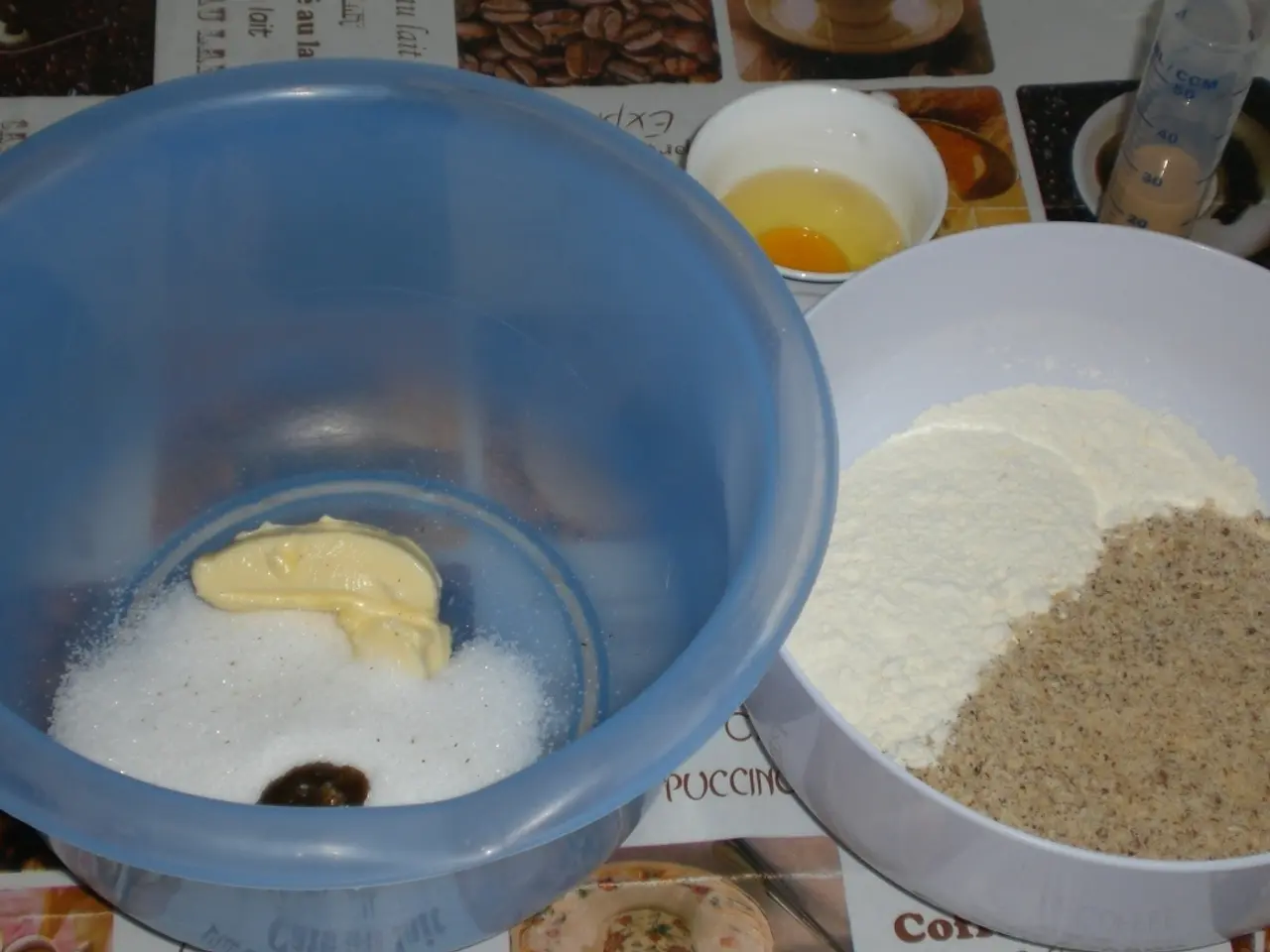To ensure a healthy liver and smooth digestion, maintain your bile's equilibrium.
Healthy Living: Bile, the Unexpected Hero (or Villain)?
You might not give bile much thought, but this olive green fluid plays a crucial role in your health. Let's take a closer look at this mysterious fluid and learn how to keep it working optimally for your benefit.
Bile is produced by your liver and stored in your gallbladder, ready to aid in the absorption of fats and fat-soluble nutrients such as vitamins A, D, E, and K. When you indulge in fatty meals, bile is released into your small intestine where it mixes with partially digested food. Bile salts and other substances break down fat globules into smaller droplets, making them easier for your intestines to break down and absorb.
However, it's essential to maintain a balanced bile level in your body, not too little or too much. An imbalance can lead to various health problems.
When Too Much is Toxic
Bile acid malabsorption (BAM) occurs when the colon can't reabsorb unused bile after digestion. This condition can be primary or secondary, with secondary cases linked to diseases like irritable bowel disease, Crohn's disease, and celiac disease.
Symptoms of BAM include bloating and diarrhea, indicating that your system is struggling to manage bile levels.
Did you know that excessive bile production can harm the liver? Research shows that overproduction of bile can lead to conditions like non-alcoholic fatty liver disease and cholestasis, slowing or stopping bile flow through your liver, gallbladder, and bile ducts. This can result in inflammation and further complications.
Optimizing Bile Flow
Here are six simple tips to ensure that your bile is flowing smoothly:
- Stay Hydrated: Drink plenty of water and electrolyte-rich drinks to keep bile thin and easily flowing.
- Eat Bitters: Foods like beets, artichokes, dandelion greens, and arugula can stimulate bile flow and increase cholecystokinin, a hormone that triggers gallbladder contraction.
- Glycine and Taurine: These essential amino acids support bile production. You'll find them in bone broth, fish, shellfish, seaweed, poultry, eggs, and supplements.
- Choose Wise Fats: Eating healthy fats like olive oil, cold-water fish, avocados, nuts, and seeds helps trigger bile release.
- Identify and Avoid Trigger Foods: Avoid fast, processed foods, sugars, and foods that trigger digestive issues. Food allergies and sensitivities can also contribute to gallbladder problems, so identify and remove these from your diet for improved bile flow.
- Support Your Liver: Detoxing can help reduce the liver's workload, supporting improved function and better bile flow.
Remember, a well-functioning liver is vital for overall health and digestion. Keep your body functioning at its best with these simple tips, and make daily choices that support a healthy lifestyle.
Sources:- "Balancing act between digestion and liver health through bile acids" - Eureka Alert- "Bile acids regulation of cellular stress responses in liver physiology and diseases" - eGastroenterology- "Understanding Bile Acid Malabsorption" - Healthline
Note: Maintaining a balanced and alkaline body can lead to increased energy, weight loss, improved digestion, reduced risk of illness, and overall well-being. Learn more about the Alkaline Secret to Ultimate Vitality and take control of your health today!
- Excessive bile can lead to non-alcoholic fatty liver disease and cholestasis, conditions marked by inflammation and potential complications due to slow or stopped bile flow.
- To optimize bile flow, you can stay hydrated, eat bitters, consume essential amino acids like glycine and taurine, choose wise fats, identify and avoid trigger foods, and support your liver through detoxing.
- Bile acid malabsorption (BAM) is a condition that arises when the colon can't reabsorb unused bile, leading to symptoms like bloating and diarrhea, indicating a struggle to manage bile levels.
- Bile plays a crucial role in the absorption of fats and fat-soluble nutrients, facilitating their breakdown in the small intestine. However, it's essential to maintain a balanced bile level, as an imbalance can result in health problems.
- Supplements containing essential amino acids, nutrients that aid digestion, and wellness products supporting liver health can help maintain a healthy bile level and overall digestive health.








